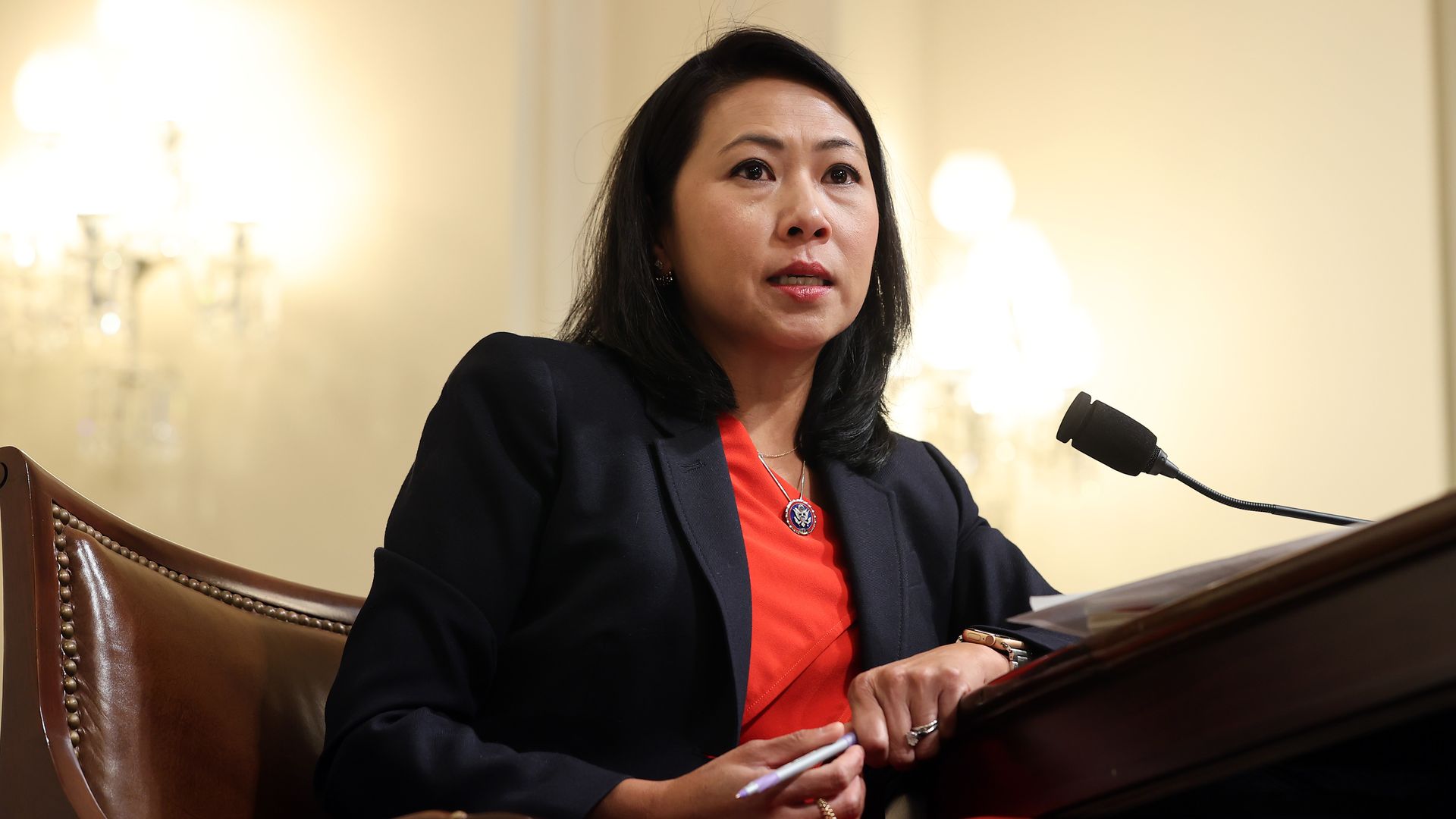Scoop: Dems seek new green deal
Add Axios as your preferred source to
see more of our stories on Google.

Rep. Stephanie Murphy. Photo: Chip Somodevilla/Getty Images/Bloomberg via Getty Images
House Democrats discussed with President Biden on Wednesday a plan to exempt billions of dollars of new climate spending from his requirement that his $3.5 trillion "soft" infrastructure plan be offset with additional revenue.
Why it matters: The accounting proposal — a version of "dynamic scoring" — would dramatically lower the amount of taxes Democrats would need to raise while creating wiggle room to increase the ultimate size of the package.
- The bill's final size will depend on two factors: How much in new taxes the centrists in both chambers can stomach, and how much creative math lawmakers are willing to use to justify the budget reconciliation bill's price tag.
- The maneuver under discussion has the potential to break a series of logjams involving progressives and centrists in the House and Senate.
What they're saying: "I'm a proponent for ensuring that the climate provisions within the reconciliation bill aren't subject to being paid for," said Rep. Stephanie Murphy (D-Fla.).
- She was among the centrist lawmakers who met with Biden on Wednesday afternoon.
- Murphy told Axios she "led" her White House remarks by suggesting that climate provisions should be exempt from “the president's desire to ensure that the entire bill is paid for.”
- Democrats are arguing that the financial cost of inaction on climate will be so high — from paying for flood to forest fire recoveries — that they don't need to raise taxes to cover their green proposals.
The big picture: The Democrats' approach to climate spending is a version of the Republicans' argument that tax cuts pay for themselves, once economists factor in so-called dynamic scoring.
- The theory is that any lost revenue from tax cuts is less than the higher overall tax receipts generated from a booming economy.
- The challenge is dynamic scoring rarely produces the amount of revenue advocates predict.
- Democrats long opposed the practice but embraced it to help justify the cost of the $1.2 trillion bipartisan infrastructure package that received both Republican and Democratic support in the Senate.
Go deeper: Democrats in both chambers are now willing to try the same concept with climate change.
- “It's not like you apply dynamic scoring to everything,” Sen. Tim Kaine (D-Va.) told Axios. “But there are climate investments we could make that would not only bring down costs to society but would also bring down costs within the federal budget.”
- With green projects, it’s difficult to calculate precisely how much hypothetical money might be saved, but some estimates put the health costs of climate change at $800 billion a year.
The other side: Republicans scoff at the notion climate spending will pay for itself.
- "They really don't want to offset anything," said Sen. Ron Johnson (R-Wis.).
By the numbers: In the House Way and Means Committee's version of the $3.5 trillion bill, there are some $273 billion in tax credits to achieve Biden’s climate goals.
- There's also an additional $150 billion for a Clean Electricity Payment Program in the Energy and Commerce Committee's wider package of climate provisions.
- Finally, the Transportation and Infrastructure Committee voted for $715 billion in new spending for everything from traditional roads to zero-emission vehicles and high-speed rail.
- If Democrats agree that none of that spending needs to be offset, that could lower the final tax requirement by hundreds of billions of dollars.
Go deeper: "Where the alarming economic damage stat in the new climate report came from"
